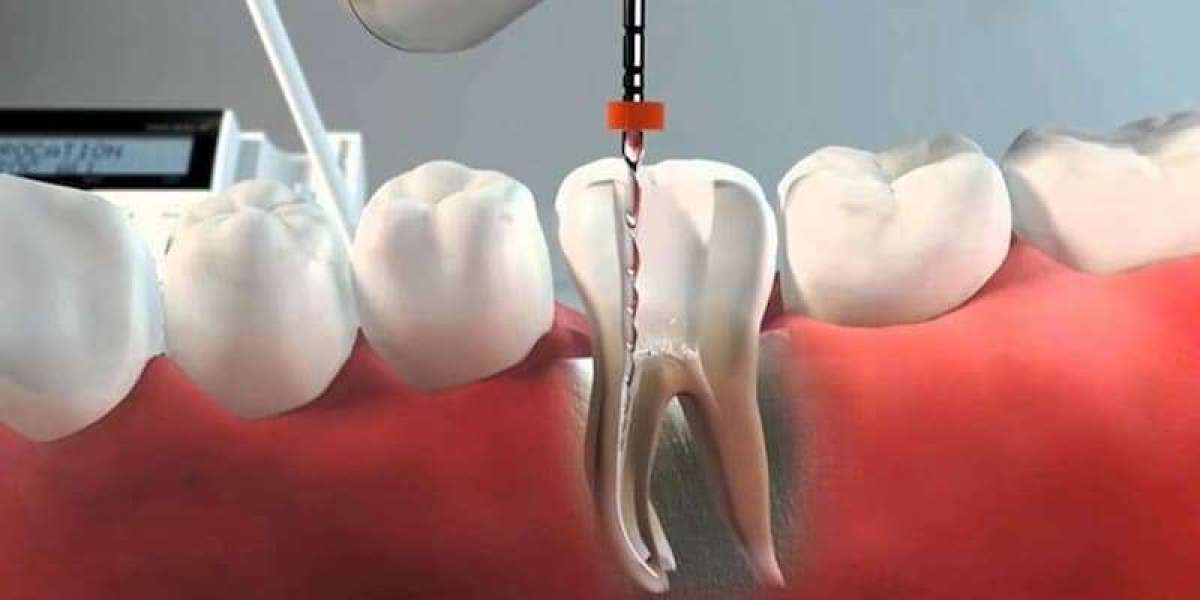Dealing with dental nerve pain can be overwhelming, especially when it escalates to inflammation requiring treatment. In many advanced dental clinics, procedures like nerve filling with inflammation in Dubai are routinely performed to relieve this condition. However, for patients seeking long-term relief, managing inflammation proactively and minimizing discomfort during or after nerve filling is equally important. By understanding the causes and implementing preventive strategies, you can significantly reduce complications and improve treatment outcomes.
What Causes Nerve Inflammation in Teeth:
Nerve inflammation, or pulpitis, occurs when the innermost tissue of the tooth becomes irritated or infected. This can happen due to deep cavities, trauma, repetitive dental work, or gum disease. As bacteria penetrate the tooth structure, the pulp responds with inflammation. The pressure caused by this swelling, trapped within the hard walls of the tooth, leads to sharp or throbbing pain. If not treated in time, it can progress to irreversible pulp damage.
When Nerve Filling Becomes Necessary:
If inflammation doesn't subside or leads to infection, a root canal—commonly referred to as nerve filling—may be required. This procedure involves removing the inflamed or infected pulp, cleaning the root canals, and sealing them to prevent further infection. While nerve filling is effective at preserving the tooth, patients often experience anxiety around the potential discomfort. Fortunately, advances in pain management and dental techniques make the process smoother than ever.
Managing Inflammation Before Treatment:
Reducing inflammation before undergoing a nerve filling can help minimize discomfort during and after the procedure. Dentists may prescribe anti-inflammatory medication or antibiotics to stabilize the tooth. Cold compresses, saltwater rinses, and avoiding trigger foods (hot, cold, or sugary items) can also relieve symptoms. Maintaining a clean oral environment is essential to control bacterial growth, which fuels inflammation.
Pain Management During Nerve Filling:
Modern dental clinics are equipped to make nerve filling procedures as comfortable as possible. Local anesthesia ensures that patients feel no pain during treatment. Sedation options are also available for those with dental anxiety. Dentists in Dubai offering nerve filling with inflammation in Dubai use precision instruments and digital imaging to minimize invasiveness and reduce tissue irritation, which helps improve patient comfort and recovery times.
Post-Treatment Care and Inflammation Control:
After a nerve filling, it’s normal to experience some tenderness for a few days. However, discomfort can be minimized with proper care. Patients should avoid chewing on the treated tooth until it's fully restored, typically with a crown. Over-the-counter pain relievers, soft foods, and good oral hygiene practices support healing. Dentists may also recommend a follow-up visit to ensure the inflammation has fully resolved.
Identifying and Managing Complications:
While most nerve fillings are successful, complications such as lingering pain, reinfection, or sensitivity can occur. These may result from untreated canal branches, a cracked tooth, or incomplete sealing. If symptoms persist beyond a week, a dentist should reassess the tooth. In some cases, retreatment or an apicoectomy may be necessary. Early detection of complications is key to avoiding more serious issues later on.
Preventive Steps to Avoid Future Nerve Inflammation:
The best way to avoid nerve filling discomfort is to prevent the condition that causes it in the first place. Brushing twice daily with fluoride toothpaste, flossing, and regular dental check-ups can keep your teeth healthy. Wearing a mouthguard during sports or nighttime grinding also protects your teeth from trauma that could lead to inflammation. For patients with a history of pulpitis, dentists may monitor susceptible teeth more closely using X-rays and thermal sensitivity tests.
Final Thoughts:
While nerve inflammation can be painful, it is manageable with early intervention and the right care plan. Advances in dental treatment and inflammation control make procedures like nerve filling with inflammation in Dubai more effective and less painful than ever before. By practicing prevention, staying alert to symptoms, and following your dentist’s advice, you can reduce your risk of discomfort and protect your long-term oral health.



